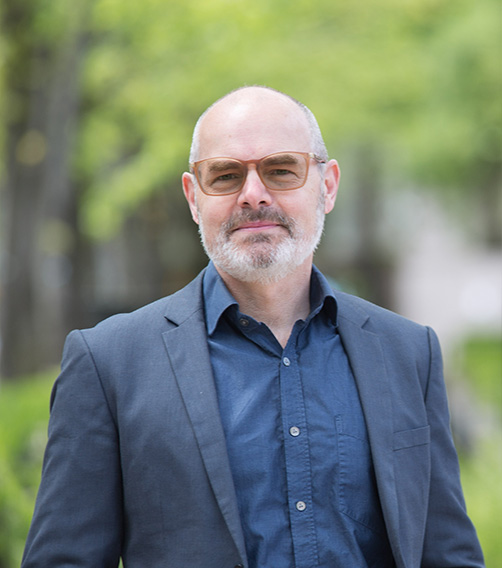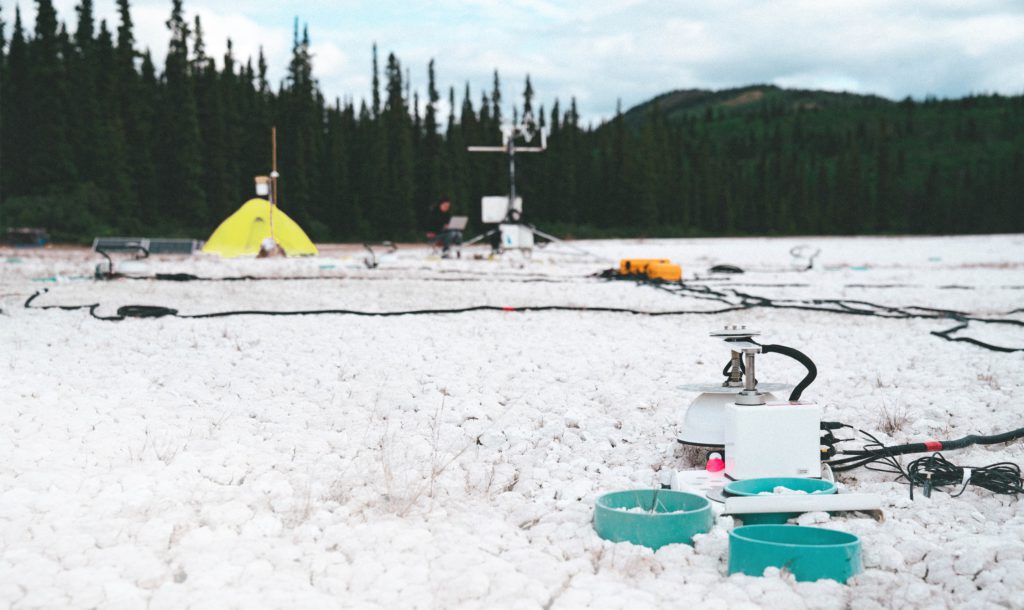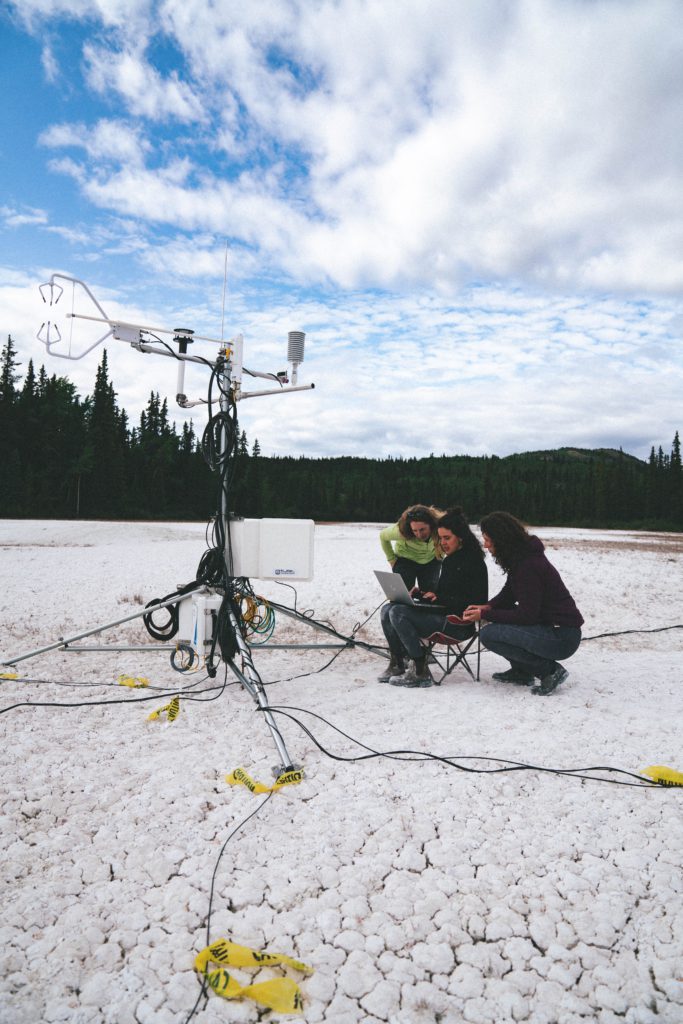A pathway to carbon-negative mining
According to the International Energy Agency, the clean energy transition will require up to 20 times more critical minerals, such as nickel, copper, cobalt, lithium, and others by 2040. That means more mining is required to achieve decarbonization goals. Unfortunately, more mining means more emissions. So, how are we going to deal with that?
The experts from Arca may have the answer to that question. The company – first established in the backyard of the University of British Columbia as Carbin Minerals – developed a technology that significantly accelerates the all-natural process of carbon mineralization in mine tailings, i.e., transform mine waste into a valuable new resource, using ultramafic mine tailings, which are a by-product of critical metal mining. This presents an unprecedented opportunity for permanent carbon dioxide removal from the atmosphere on a gigatonne scale, which makes critical metal mining carbon negative.
Recently, I met with Paul Needham (PN), CEO of Arca, to talk about the company, the technology, and the future of net-zero.

TE: Can you please tell us about the history of Arca, its mission, goals, and how the company started?
PN: Arca is a leader in carbon mineralization. Our mission is to help stop – and reverse – climate change by capturing gigatonnes of CO2 and returning it to the ground. We are developing and deploying a range of technologies that accelerate the natural geochemical process of “carbon mineralization” (i.e., the transformation of CO2 from the air into solid carbonate minerals).
We work in partnership with producers of critical metals, the mining companies that are finding and delivering the metals and minerals that are essential for the clean energy transition. We help them transform their mining waste – the by-products of their mineral extraction processes – into a massive carbon sink. In short, Arca captures atmospheric CO2 and transforms it into rock, where it is safely stored forever.
TE: How did you become the CEO of Arca?
PN: I met the co-founders of Arca, Prof. Greg Dipple, Peter Scheuermann, and Bethany Ladd, just after they decided to launch the company. I was working as an “entrepreneur in residence” at the University of British Columbia helping start-ups translate their ideas into businesses.
I am a multi-time entrepreneur myself. Prior to working with Arca, I co-founded a solar energy company in India. After having sold that company, I moved back to Vancouver and joined the University of British Columbia. When I met the Arca co-founders, I quickly understood that they have a solution that can help solve and resolve the clean energy paradox.
On the one hand, the world will need 10 to 20 times more nickel and other critical metals to successfully transition to clean energy. On the other hand, modern mining processes are carbon intensive. Arca resolves that paradox by providing a pathway to carbon-negative mining.
TE: Recently, you rebranded from Carbin Minerals to Arca. What was the reason for the rebranding? Why did you feel that you needed to rebrand?
PN: In Latin, Arca is a chest, a treasure chest, a safe place to store valuables. Our company is capturing and safely storing away CO2. Our mission is to help stop and reverse climate change, by capturing gigatonnes of CO2 and returning it to the ground.
The timing of our rebrand marks the transition of our project from an academic research programme to a commercial operation and establishes our leadership in this promising new domain of accelerated carbon mineralization as a climate solution.

TE: How does Arca provide a pathway to carbon-negative mining?
PN: We believe that mines of the future can help tackle emissions of the past. There is already far too much CO2 in the atmosphere. The world needs to rapidly transition to zero-carbon energy, and that of course creates a remarkable opportunity for the minerals industry. But we all know that mining itself can be very carbon intensive.
More than a decade ago, Prof. Greg Dipple, our co-founder, started to ask the questions: What if mining could become carbon negative? What if the producers of the critical metals and minerals we need for the clean energy transition could also be mining the air for CO2?
At Arca, we work with minerals producers that are committed to the clean energy transition and help them transform their mining waste into a massive carbon sink. As you may know certain minerals naturally react with CO2 forming carbonate minerals such as magnesium carbonates. We work in the context of ultramafic rock, and we have developed technologies that significantly accelerate the natural geochemical process of carbon mineralization.
We are working with mining companies that have properties at all stages of development. We help our partners analyze, measure, and maximize the carbon mineralization potential of their resource. Our partners recognize that the ability to produce zero-carbon critical metals could give them an advantage in the marketplace. That advantage could take the form of long-term purchase agreements, or better pricing.
TE: Last year, 2022, Arca won US $1 million award from XPRIZE and the Musk Foundation. Can you talk to us about the XPRIZE carbon removal competition? How important was it for you to have won that prize?
PN: XPRIZE is the leader in prize competitions to accelerate breakthroughs that benefit humanity. The XPRIZE milestone award for carbon dioxide removal is an important recognition and validation of our technology. The XPRIZE organization runs a very thorough process of due diligence, and we know that they received over 1,300 initial applications. This award helps us advance our R&D and has attracted a lot of attention to the company, opening new doors to new partnership opportunities as well.
TE: Also recently, Foresight Canada has announced the honorees for the second annual Foresight 50, including Arca. Please talk to us about Foresight Canada, and tell us what it means to you to be included on that list?
PN: We are especially proud to be included in this list of Canada’s most investable cleantech ventures. Foresight is Canada’s cleantech accelerator, bringing together innovators, investors, government, and academia to create solutions to the world’s most pressing climate challenges.
TE: Prior to that, you also launched a partnership with Shopify’s sustainability fund. What is the goal of that partnership and how will it help you achieve your goals?
PN: Shopify is truly a climate leader. They have committed to get to net-zero and are investing in emission reductions and CO2 removal. Together with Stripe, Shopify has co-founded an organization called “Frontier Climate,” an association of pioneering climate leaders that are taking responsibility for their emissions.
Under our contracts with Shopify and Frontier, we have committed to capture and permanently store nearly 1,000 tonnes of CO2 over the next two years.

TE: Finally, how does the future of net-zero look like to you?
PN: The world must rapidly decarbonize. We need to reduce emissions by 50% by 2030 and another 50% by 2050. But even that is not enough. We also need to begin to remove excess CO2 from the atmosphere. Tens of millions of people around the world are experiencing the negative impacts of climate change today. That is why we work with the producers of the critical metals and minerals that are essential for the clean energy transition and help them transform the by-products of their mining operations into a positive climate solution that can capture CO2 from the atmosphere and return it to the ground.
This interview is complimented by a video interview with Greg Dipple, head of science and co-founder of Arca, that will be posted on the Northern Miner website.
Comments